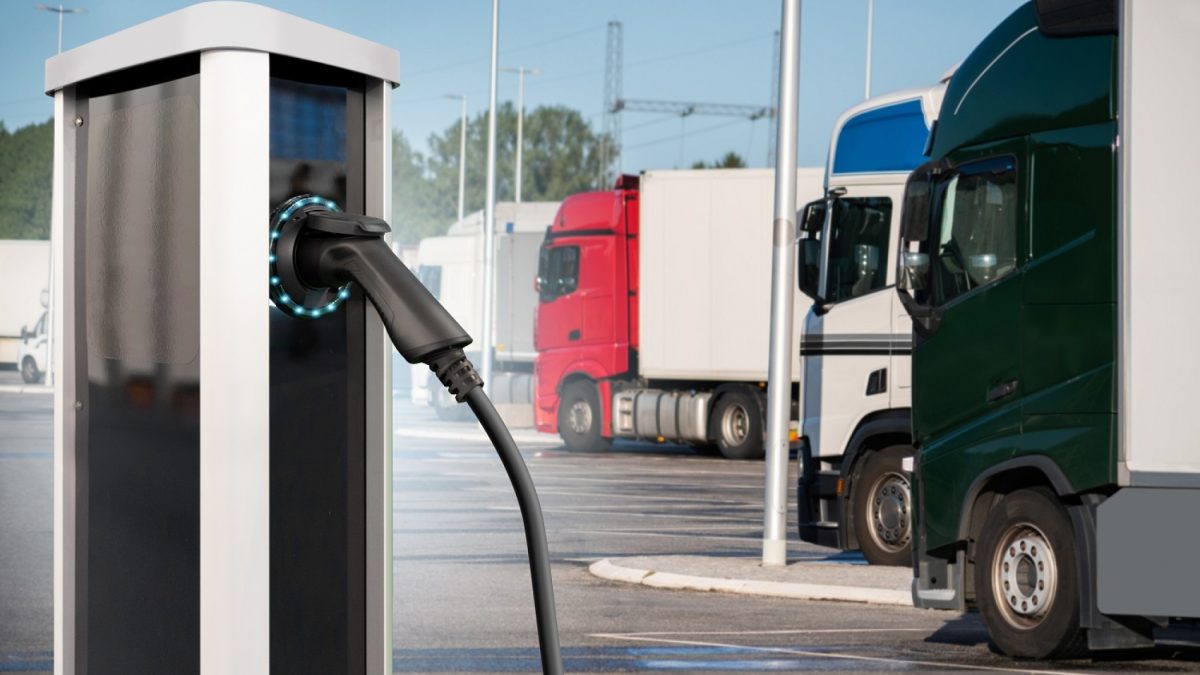In the evolving landscape of European procurement and supply chain logistics, electric mobility is revolutionising how consumer goods companies execute last-mile delivery of their products.
Once considered a niche alternative to traditional transportation, electric cargo vehicles are now central to the strategic planning of large companies and offer a range of benefits from cost savings to sustainability.
Here is a look at how electric mobility is transforming supply and distribution in the FMCG sector and what this means both for the retailers and the consumer.
Sustainable supply chain in FMCG
A shift towards electric mobility is evident with consumer goods companies increasingly adopting electric vehicles (EVs) for their upstream and downstream logistics. In Europe, the adoption of electric trucks by consumer-facing organisations is primarily driven by regulatory pressures and the demand for greener practices. In 2023, the International Council on Clean Transportation (ICCT) reported that sales for zero-emission heavy vehicles in the European Union (EU) grew by 28%, with Germany (30%), France (15%), and the Netherlands (15%) leading the charge.
This move to electric mobility is largely driven by the need to reduce carbon footprints. Traditional logistics operations are heavily reliant on diesel-powered trucks and have been a significant contributor to Scope 3 emissions of distribution-heavy FMCG companies. By transitioning to electric fleets, these organisations aim to drastically cut emissions and align with their global sustainability goals. On a macro level, the EU’s 2030 emissions reduction target for heavy-duty vehicles is 45% which would equate to savings of approximately 112.5 million tonnes of CO2, should these objectives be achieved.
Global FMCG companies such as PepsiCo and L’Oréal have already begun integrating EVs into their European supply chains. PepsiCo, for example, has partnered with freight mobility technology firm Einride to introduce electric trucks into the supply chain of its snacking business in the UK. Similarly, L’Oréal is planning a supply chain transformation under its “L’Oréal for the Future” initiative that aims to use electric trucks for distribution.
Advancements in EV technology
A critical component in the progress of EV adoption by FMCG companies is the availability of charging infrastructure. Without a robust network of charging stations, the operational efficiency of electric fleets is compromised. To meet this growing demand, charge point operators are now investing heavily in building private charging networks across Europe. This infrastructure development not only supports daily logistics but also ensures the long-term viability of electric mobility solutions for global companies.
Moreover, advancements in battery component technology are another pivotal factor driving the adoption of electric mobility. Modern batteries offer longer ranges and faster charging times, addressing two of the primary concerns that have historically hindered B2B adoption of electric trucks. FMCG companies are actively investing in research and development to improve battery performance and reduce costs. For example, UK-based supply and distribution company EV Cargo announced its sustainability partnership with one of its key FMCG customers to operate an all-electric, zero-emission heavy goods vehicle using “smart journey planning” technology.
Regulatory and economic incentives
EU governments are providing significant incentives to promote the adoption of electric vehicles. These incentives range from tax breaks and subsidies to grants for building charging infrastructure, in line with the Fit for 55 legislative package. The European Green Deal, for instance, includes measures to support this transition to electric mobility and offers financial incentives to companies that invest in electric vehicles.
Beyond regulatory incentives, the economic benefits of electric mobility are becoming increasingly apparent. EVs, while costing more upfront, offer substantial savings in terms of fuel and maintenance. B2B customers are particularly interested in commercial vehicles with electric engines owing to lesser downtime and lower breakdown costs, compared to traditional counterparts. Additionally, the volatility of fuel prices makes EVs a more predictable and stable option for long-term financial planning for organisations.
Consumer expectations on sustainable brands
Modern FMCG consumers are more environmentally conscious than ever before and expect FMCG brands to take meaningful action towards sustainability. Companies that adopt electric mobility not only reduce their environmental impact but also enhance their appeal to this growing segment of eco-conscious consumers. This shift in consumer expectations is further propelling companies to prioritise green logistics solutions.
Electric mobility is also enabling new distribution models. For example, the use of electric cargo bikes in urban areas allows for faster and more efficient deliveries, especially in congested city centres where traditional delivery vehicles may struggle. Companies such as Amazon and DHL are already piloting such initiatives, exploring how these innovative solutions can improve delivery times and customer satisfaction.
Future prospects
While the benefits of electric mobility are clear, challenges do remain. The infrastructure for charging these electric heavy goods vehicles, especially in less developed regions of the EU, is still in nascent stages. FMCG companies must navigate these limitations together and co-invest in developing the necessary infrastructure to support collective operations. Although the initial investment required for transitioning to electric mobility can be a significant barrier for some companies, economies of scale can be achieved as technology advances and costs decrease. This would make electric mobility more accessible to a broader range of company sizes. The growing use of electric mobility by consumer goods companies is reshaping the entire landscape of supply and distribution. By embracing this shift, companies can achieve substantial sustainability goals, realise cost savings, and meet evolving consumer expectations.
How we support clients
As infrastructure and technology continue to advance, the role of electric mobility in logistics is set to expand, heralding a new era of green and efficient supply chain management. The future of consumer goods logistics is electric and those who adapt early stand to gain the most. At Xynteo, we help global FMCG companies transition to electric supply chain by developing tailored strategies in the following ways:
- Strategic planning: Developing a comprehensive strategy for integrating EVs into the supply chain, including timelines, budget estimates, and key milestones.
- Regulatory compliance: Navigating complex regulatory environments to ensure compliance with local, national, and international emissions standards.
- Innovation workshops: Exploring new ideas and solutions for sustainable logistics and evaluating the effectiveness of the existing strategy.
- Feasibility studies: Assessing the potential impacts and benefits of transitioning to electric vehicles, including cost-benefit analysis and ROI projections.
- Supply chain optimisation: Advising on the implementation of advanced technologies such as Internet of Things (IoT) and Artificial Intelligence (AI) for real-time monitoring and management of electric fleets.
The integration of electric mobility in FMCG logistics marks a pivotal shift towards a sustainable and efficient supply chain management. As infrastructure and technology advance, early adopters stand to gain significant competitive advantages. At Xynteo, we are dedicated to helping FMCG companies navigate this transition with tailored strategies, stakeholder engagement, and innovative solutions. Join us in leading the charge towards a greener future – connect with Ellie Besley-Gould today to transform your logistics operations and achieve your sustainability goals.



